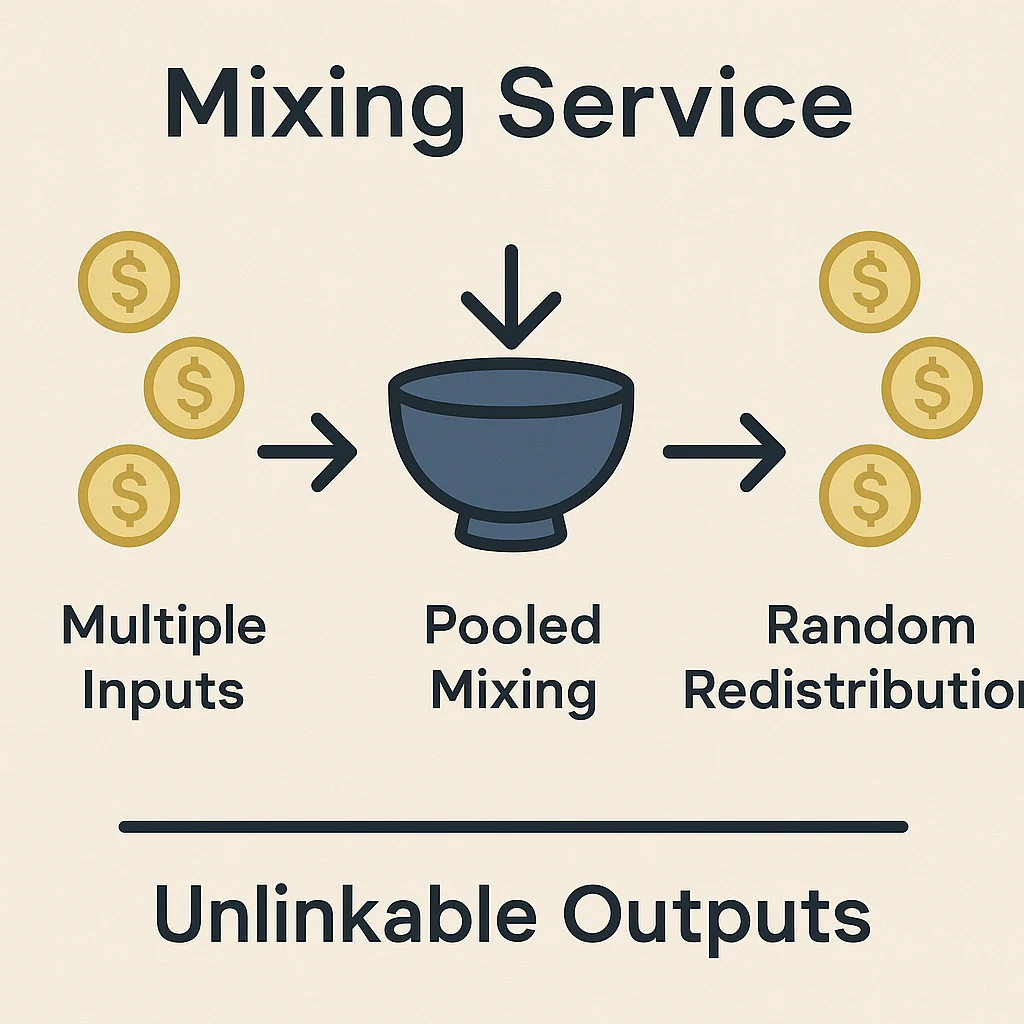Mixing Service
Mixing Service: Shuffling Coins for Privacy
Mixing services (or tumblers) pool cryptocurrencies from multiple users then redistribute different coins to break transaction links. It’s like exchanging your marked bills for unmarked ones.
A mixing service is a privacy tool that pools cryptocurrencies from multiple users and redistributes them to break the link between sending and receiving addresses. Users deposit coins and receive different coins of equal value, obscuring transaction histories.
How Mixing Services Work
Pooling deposits from multiple users creates a large pool of mixed funds where individual contributions become indistinguishable from each other.
Random delays and amount splitting prevent timing analysis or amount correlation that could be used to link deposits with withdrawals.
Fresh outputs come from different sources than inputs, making it difficult for blockchain analysts to trace funds through the mixing process.

Real-World Examples
- Tornado Cash – Ethereum mixing protocol using zero-knowledge proofs for enhanced privacy
- CoinJoin – Bitcoin mixing technique that combines multiple users’ transactions
- Wasabi Wallet – Bitcoin wallet with built-in CoinJoin mixing functionality
Why Beginners Should Care
Privacy protection helps prevent transaction surveillance and protects users from targeted attacks based on blockchain analysis of their spending patterns.
Regulatory scrutiny has led to sanctions against some mixing services and exchange policies against mixed funds, limiting practical utility.
Legitimate uses include protecting business privacy, preventing targeted theft, and maintaining financial confidentiality that most people expect from traditional banking.
Related Terms: Privacy Coin, CoinJoin, Tornado Cash, Transaction Privacy
